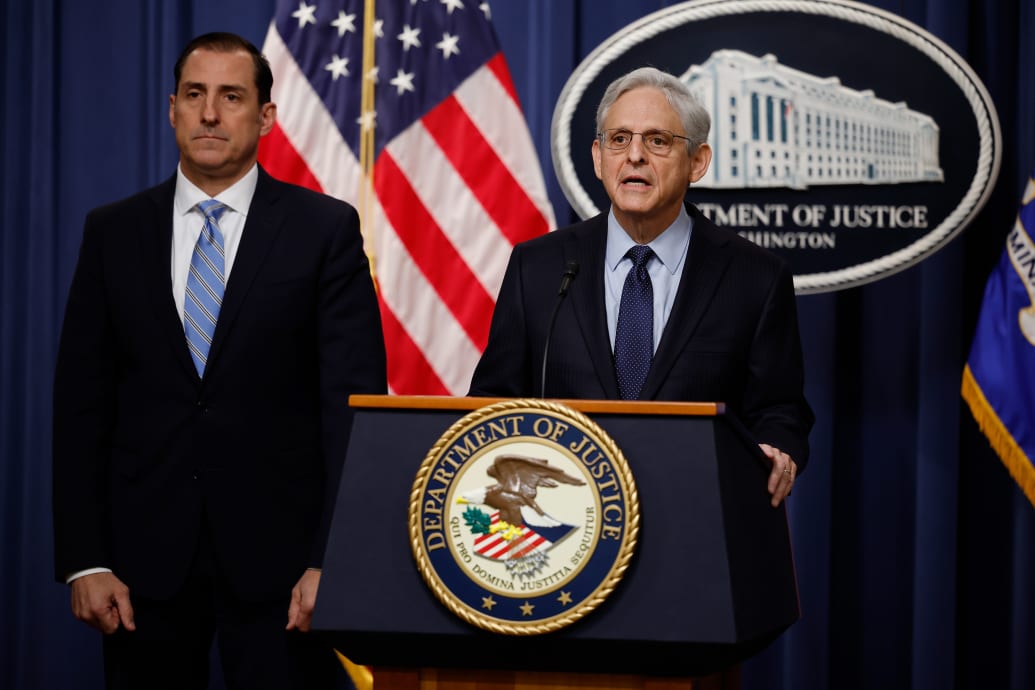Amidst the drama and debate over the called “The U.S. Government Keeps Too Many Secrets” by Mike Giglio noted that “eight blue-ribbon U.S. government commissions have addressed the subject since World War II.” Instead, more classified documents pile up in secure locations and, periodically, unsurprisingly, elsewhere. (I myself have been making this argument for a long long time. To pick just two instances, in the MIT Technology Review in 2005 and in Foreign Policy in 2012. I raise it again here not because of the specifics of either of the two current cases, but because those cases could be used as a catalyst to revisit our thinking on this front.)
Former director of both the Central Intelligence Agency and the National Security Agency General Michael Hayden characterized this to me as “a real problem” that will demand a concerted effort to fix. But he warned, should we fail to address it, “real secrets” will be compromised.
Former Acting CIA Director Michael Morrell notes that while he feels that the Central Intelligence Agency itself generally handles the classification of documents properly, “I believe that CIA does not declassify anywhere near what they could/should under the law.” He describes this as largely a resource issue. Another senior career intelligence official with whom I spoke added that he felt other branches of government, particularly those “outside the intelligence community” were guilty of over-classifying documents, of marking them “Confidential” or “Secret” or “Top Secret” when it was “absolutely not warranted.”
Amy Zegart, a Stanford University professor of political science and national security expert, expanded on this point: “Overclassification is a far more serious problem than most people realize. The more classified something is, the harder it is to share inside the U.S. government. The result: information gets marooned in different bureaucracies, making it harder to connect the dots. Overclassification also inhibits the government’s ability to get information, insights, and help from the outside world.
Offering an illustration, Zegart says, “In cyber, for example, even the phrase ‘offensive cyberoperations’ was classified until the mid-2000s. Not what offensive cyberoperations were, the targets, or the technologies involved. Just the phrase. That’s nuts. Getting more minds in and out of government thinking about hard problems is essential, and over-classification makes that difficult, frustrating, and sometimes impossible.” Zegart has been actively involved in efforts to help U.S. Cyber Command and other agencies defuse this problem.
In his article in The Atlantic, Giglio quoted national security expert Elizabeth Gotein, who said the problems in our classification system over overclassification are “rampant.” Gotein, in a 2016 article in The Nation argued that “officials encounter multiple incentives to err liberally on the side of classification” and, as a consequence, it is estimated that 50 percent to 90 percent of classified documents could be safely released. (She notes that while the Obama administration made an effort to reduce classifications, in 2014 there were nearly 80 million decisions to classify information. Her article was published around the time of the furor regarding what, if any, information in Hillary Clinton’s emails was classified or should have been. Gotein argued that not understanding how the system works distorted voters’ understanding of that controversy seven years ago.
Former CENTCOM commander General Anthony Zinni once relayed to me the results of a study he conducted, regarding the classified info he received daily. He told me that 80 percent of officially designated “classified” material he received was actually available via open sources. Of the remaining 20 percent, Zinni said, 80 percent was discoverable via open sources if you knew what you were looking for. In other words, only four percent was uniquely available via classified channels.

Local law enforcement officers in front of the home of former President Donald Trump at Mar-A-Lago in Palm Beach, Florida on Aug. 9, 2022.
Giorgio Viera/AFP via Getty
Go back further and you will find a 2013 article by Ronan Farrow in The Guardian in which he wrote, “Trillions of new pages of text are classified each year. More than 4.8 million people now have a security clearance, including low level contractors like Edward Snowden. A committee established by Congress, the Public Interest Declassification Board, warned in December that rampant over-classification is ‘imped[ing] informed government decisions and an informed public’ and, worse, ‘enabl[ing] corruption and malfeasance.’”
That was a decade ago, and yet we’re enduring not one but two presidential scandals tied to classified information.
But noting the regular clarion calls to fix this system, and the limited concrete steps that have been taken to do so, it’s fair to characterize our unwillingness to fix a system this badly in need of repair for three-quarters of a century as one of the biggest national security scandals of our time.
If it turns out that Donald Trump was holding on to classified documents with the intention of using them to enrich himself, or if he was sharing them with foreign countries or their agents, it would be a crime of historic proportions. If it is found it was simply his arrogance that led him to hold on to the documents, it is still egregious.
The Biden case should be investigated just as thoroughly. Both the current and the former president should be held to the same standard. Should wrongdoing have taken place in either case, whomever is responsible should be held to account. That said, having followed the revelations in both instances carefully, it is my bet is that once all the facts are in, the two will be seen to be as even more different than they appear right now: the Trump case one of clear and willful violation of the law, the Biden case one of error but constant and attentive compliance with those same laws and procedures.
But however those two cases are resolved, after the smoke has cleared from the political firestorms that will swirl around them for months to come, it would be helpful if we used our heightened awareness of these issues to finally take action and modernize the design and security of the information system upon which our government depends. That means far fewer classified documents, far fewer people with the power to classify and declassify documents, and a system that is easier to use, more secure, and less likely to invite abuse or error.

